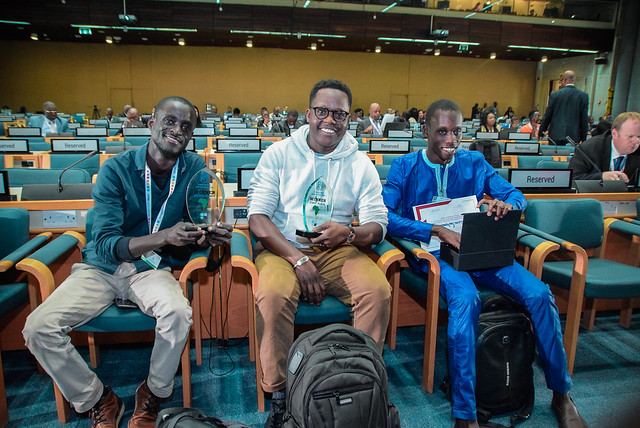E-Commerce Markets in Africa: A Mobile Economy

Africa holds less than 2 percent of the global e-commerce market, but an increase in participation could benefit the continent on a massive economic scale.
In fact, it has been shown that e-commerce allows consumers to connect to businesses as well as to other consumers in order to exchange goods via the Internet. E-commerce benefits global markets by improving efficiency in distribution channels and creating a more prominent market presence for individuals or businesses trying to sell products. For developing countries in Africa, one of the main obstacles in gaining access to e-commerce markets is limited access to banks.
Mobile Money
Globally, roughly 1.7 billion adults remain without access to a financial institution.
In order to alleviate this problem, mobile banking services focus on the high percentage of adults who have mobile phones in Africa. In South Africa, about 90 percent of the adult population owns a mobile device; whereas, Tanzania has the lowest with only about 75 percent of the adult population owning a mobile device.
The integration of mobile banking companies has increased dramatically over the past decade with 135 live mobile monetary services available in 2017. In fact, the number of subscribers in sub-Saharan Africa hit 44 percent in 2017. Mobile banking is attractive to people who do not physically have access to a bank or who do not have a permanent home address. It allows them to set up an account and protect their money electronically while giving them the freedom to interact financially on a global scale through e-commerce.
The Problem of Rural Communities
A smaller density of people lives in rural areas so there is a lower prospective income for operators who wish to set up mobile services in these regions. Roughly 20 percent of the population of sub-Saharan Africa is spread over 70 percent of the land. Consequently, operators in rural communities only secure a revenue of about one-tenth compared to those who work in urban areas.
Since many individuals rely on mobile banking to engage in the global market, reducing this barrier is essential to the continued development of e-commerce markets in Africa. As a result, in 2018, Uganda’s Communications Commission decided to pair with satellite firms Intelsat and Gilat in order to help increase access for those living in two rural communities.
The Prospective Value of E-Commerce Markets in Africa
A study by the McKinsey Global Institute estimates 3.7 trillion dollars (6 percent of GDP) could be added to the developing world’s collective GDP by 2025 due to a growing digital finance sector. It is 80 to 90 percent less expensive for financial institutions to provide mobile banking services than it is to create new physical branches. This method allows financial institutions to penetrate more of the population in developing and rural areas.
The e-commerce market has the potential to grow enormously over the next five years. Although access to financial institutions is an obstacle that many less privileged individuals face, an increase in mobile money services is helping to create parity. Financial inclusion means an upward trend in the global market participation, and through the development of internet-based trade, the global economy will experience more consumers, products and efficient distribution.
– Tera Hofmann
Photo: Flickr
